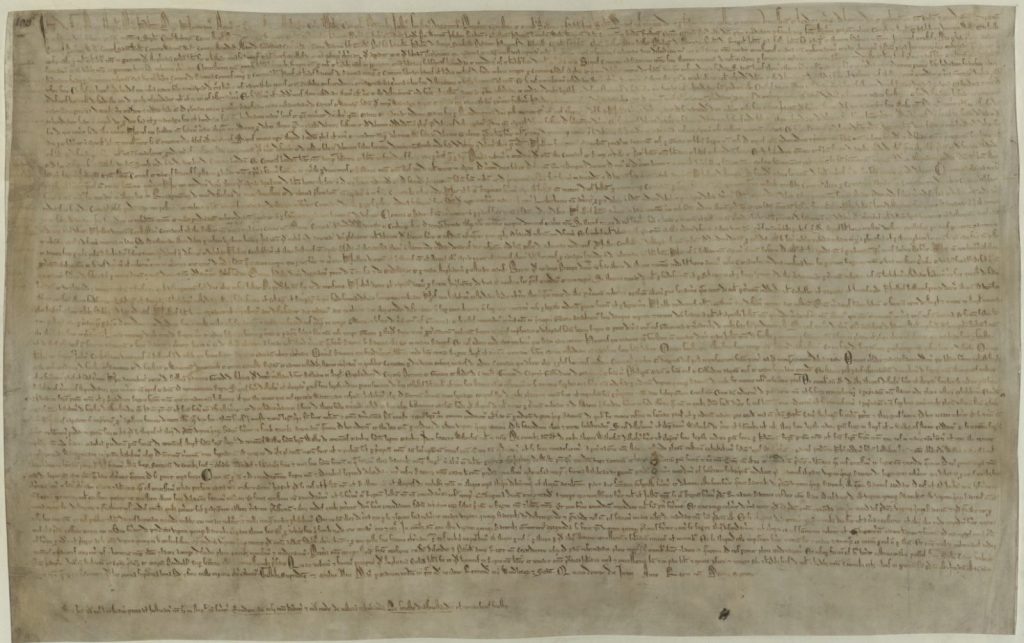Britten’s Fanfare for St Edmundsbury, performed here with guest trumpet Phil Cobb, was premiered in 1959 at the Bury St. Edmunds ‘Pageant of Magna Carta’.
First issued in 1215, and then reissued in 1216, 1217 and 1226 the final iteration of Magna Carta acts as a legislative bedrock for the English speaking democracies of the world; it was the first document to put into writing the principle that the King and his government was not above the law. It sought to prevent future monarchs from exploiting their power, and placed limits on royal authority by establishing the law as a power in itself.
Three of the clauses remain on the statute book in the UK today:
‘No free man shall be seized, imprisoned, dispossessed, outlawed, exiled or ruined in any way, nor in any way proceeded against, except by the lawful judgement of his peers and the law of the land.’ To no one will we sell, to no one will we deny or delay right or justice.’

Magna Carta. The Great Charter of English Liberties, first issued by King John at Runnymede on 15 June 1215. This document is one of the four surviving exemplifications. Date 1215, British Library Collection.

Artistic Director and Tuba – Ensemble of the Golden Bough



